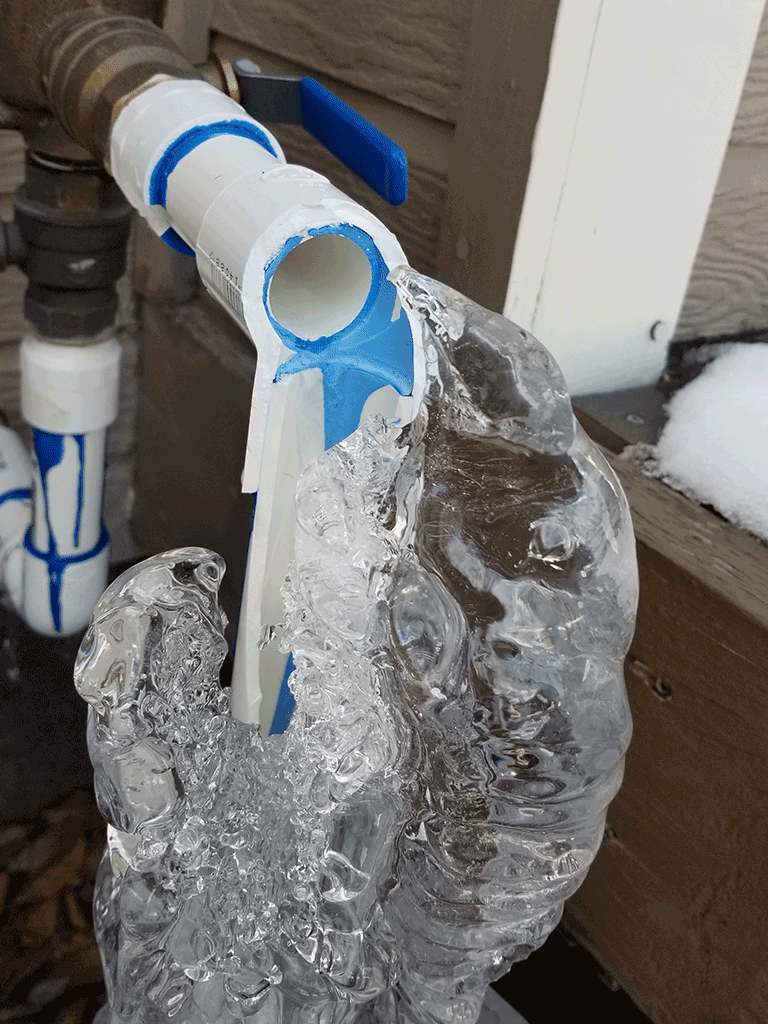Essential Methods for Preventing Frozen Plumbing in Cold Weather
Essential Methods for Preventing Frozen Plumbing in Cold Weather
Blog Article
Just how do you actually feel in regards to How To Avoid Freezing Pipes?

Cold weather can wreak havoc on your pipes, particularly by freezing pipes. Right here's exactly how to prevent it from occurring and what to do if it does.
Introduction
As temperature levels decline, the threat of frozen pipes increases, potentially leading to expensive repair services and water damages. Recognizing just how to avoid frozen pipes is important for house owners in cold climates.
Prevention Tips
Insulating vulnerable pipes
Cover pipelines in insulation sleeves or make use of warm tape to secure them from freezing temperatures. Concentrate on pipelines in unheated or external locations of the home.
Home heating methods
Maintain interior rooms sufficiently warmed, specifically areas with plumbing. Open up cabinet doors to enable cozy air to circulate around pipelines under sinks.
Just how to identify icy pipelines
Search for lowered water circulation from faucets, unusual odors or sounds from pipes, and noticeable frost on subjected pipelines.
Long-Term Solutions
Structural modifications
Take into consideration rerouting pipelines away from outside walls or unheated areas. Add additional insulation to attic rooms, basements, and crawl spaces.
Updating insulation
Buy high-quality insulation for pipes, attics, and wall surfaces. Proper insulation helps preserve regular temperature levels and reduces the threat of frozen pipelines.
Protecting Outside Pipes
Yard tubes and outdoor taps
Separate and drain pipes yard pipes before wintertime. Set up frost-proof spigots or cover outdoor taps with protected caps.
Comprehending Frozen Pipelines
What triggers pipes to ice up?
Pipes freeze when revealed to temperature levels below 32 ° F (0 ° C) for extended durations. As water inside the pipes ices up, it expands, taxing the pipeline walls and possibly creating them to rupture.
Risks and damages
Frozen pipelines can lead to water supply interruptions, residential or commercial property damage, and costly repair work. Ruptured pipelines can flood homes and trigger comprehensive architectural damages.
Signs of Frozen Pipes
Recognizing frozen pipes early can stop them from bursting.
What to Do If Your Pipes Freeze
Immediate actions to take
If you presume frozen pipes, maintain faucets open to alleviate stress as the ice melts. Make use of a hairdryer or towels soaked in hot water to thaw pipelines gradually.
Final thought
Avoiding frozen pipes requires aggressive actions and quick feedbacks. By recognizing the reasons, signs, and safety nets, home owners can secure their pipes during winter.
Helpful Tips to Prevent Frozen Pipes this Winter
UNDERSTANDING THE BASICS: WHY PIPES FREEZE AND WHY IT’S A PROBLEM
Water freezing inside pipes is common during the winter months, but understanding why pipes freeze, and the potential problems it can cause is crucial in preventing such incidents. This section will delve into the basics of why pipes freeze and the associated problems that may arise.
THE SCIENCE BEHIND FROZEN PIPES
When water reaches freezing temperatures, it undergoes a physical transformation and solidifies into ice. This expansion of water as it freezes is the primary reason pipes can burst. As the water inside the pipe freezes, it expands, creating immense pressure on the walls. If the pressure becomes too great, the pipe can crack or rupture, leading to leaks and water damage.
FACTORS THAT CONTRIBUTE TO PIPE FREEZING
Low Temperatures: Extremely cold weather, especially below freezing, increases the risk of pipes freezing. Uninsulated or Poorly Insulated Pipes: Pipes located in unheated areas, such as basements, crawl spaces, or attics, are more prone to freezing. Insufficient insulation or lack of insulation altogether exacerbates the problem. Exterior Wall Exposure: Pipes running along exterior walls are susceptible to freezing as they encounter colder temperatures outside. Lack of Heating or Temperature Regulation: Inadequate heating or inconsistent temperature control in your home can contribute to frozen pipes. PROBLEMS CAUSED BY FROZEN PIPES
- Pipe Bursting: As mentioned earlier, the expansion of water as it freezes can cause pipes to burst, resulting in significant water damage.
- Water Damage: When pipes burst, it can lead to flooding and water damage to your property, including walls, ceilings, flooring, and personal belongings.
- Structural Damage: Prolonged exposure to water from burst pipes can compromise the structural integrity of your home, leading to costly repairs.
- Mold and Mildew Growth: Excess moisture from water damage can create a favorable environment for mold and mildew growth, posing health risks to occupants.
- Disrupted Water Supply: Frozen pipes can also result in a complete or partial loss of water supply until the issue is resolved.
WHY CERTAIN PIPES ARE MORE PRONE TO FREEZING
- Location: Pipes located in unheated or poorly insulated areas, such as basements, crawl spaces, attics, or exterior walls, are at higher risk of freezing.
- Exterior Pipes: Outdoor pipes, such as those used for irrigation or exposed plumbing, are particularly vulnerable to freezing as they are directly exposed to the elements.
- Supply Lines: Pipes that carry water from the main water supply into your home, including the main water line, are critical to protect as freezing in these lines can affect your entire plumbing system.
- Underground Pipes: Pipes buried underground, such as those connected to sprinkler systems or outdoor faucets, can be susceptible to freezing if not properly insulated.
https://busybusy.com/blog/helpful-tips-to-prevent-frozen-pipes-this-winter/

Hopefully you liked our post about Prevent Frozen Pipes . Thanks a ton for taking a few minutes to read our piece of content. Don't hesitate to set aside a second to share this blog entry if you enjoyed reading it. We appreciate your readership.
Recurring Service Plans Report this page